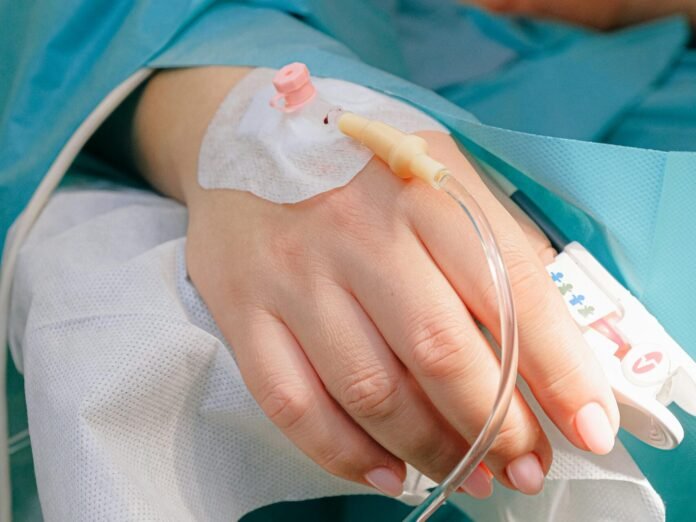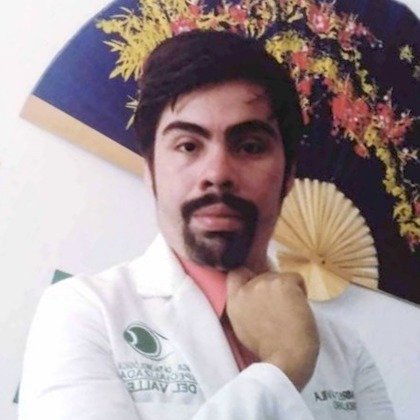This type of treatment seeks to stimulate the production of oxygen within the body directly or indirectly; we have different forms, some are intravenous, and some can use other routes of administration, for example:
- Hyperbaric chamber oxygen therapy
- Zone therapy: which is a mixture of oxygen and ozone, and is generally used to strengthen the immune system, reduce pain and other chronic conditions (remember that we already have a topic related to ozone in Vallarta Mirror)
- Administration of compounds from enriched oxygen and what stimulates enzymatic activity (hydrogen peroxide)
What is hydrogen peroxide?
Hydrogen peroxide is composed of 2 hydrogen atoms and 2 oxygen atoms. This colorless liquid has oxidizing and disinfectant properties, which is why it is used as a bactericide, viricidal and antifungal.
It is commonly applied topically and is also employed in water purification.
In the last 10 years, studies of its application have been carried out in different research centers in England, Japan, Russia, Canada and even Cuba.
When a hydrogen peroxide solution is administered intravenously, a large part of it is quickly broken down into water and oxygen thanks to the action of the enzyme catalase, but a smaller percentage is taken up by cytochrome c oxidase which will degrade to peroxide after 40 minutes.
The interesting thing about this is that oxygen is released a second time, when the peroxide has already been distributed in all the tissues, allowing for deeper oxygenation.
How is peroxide used in peroxidation therapy?
This type of treatment is based on the body’s ability to generate oxygen, thanks to the activity of catalase on hydrogen peroxide, thus having hydrogen peroxide plus catalase generate water and an oxygen molecule.
Dr. T.H. Oliver first reported the use of hydrogen peroxide intravenously in the Lancet in 1920, and great results were reported in patients with influenza.
In the last 10 years, studies of its application have been carried out in different research centers in England, Japan, Russia, Canada, and even Cuba.
Effects of peroxidation on the body:
– Internal stimulation (diuresis, improves insomnia)
– Slight increase in temperature (stimulates metabolism)
– Increased basophils and white blood cell count
– Improved hemoglobin and uric acid levels
– Decreased blood viscosity
Indications:
- Asthma
- Emphysema
- Chronic obstructive pulmonary disease (COPD).
- Cardiovascular disease
- Cerebrovascular Accident (CVA), ischemic or hemorrhagic
- Peripheral vascular disease
- Arrhythmias
- Flu
- Herpes Simplex
- Herpes Zoster
- Temporal arteritis
- Headache
- Migraine
- Myocardial ischemia (derived from infarction)
- Mononucleosis
- Epstein-Barr Virus Infection
- Type II Diabetes
- Hepatitis
- HIV
- Parasites
- Mycosis (such as candida)
- Bacterial Infections
- Candidiasis
- Chronic Pain Syndrome
- Cancer – Pain in metastatic AC
- Cancer – pain in metastasis
- Allergies
- Multiple sclerosis
- Rheumatoid Arthritis
- Leukemia
Some possible side effects
The most common side effect is inflammation of the vein used for the infusion. This effect is very inconsistent, occurring repeatedly in some patients but rarely in others. This reaction is less likely to occur if a large vein is used and administration is slow, at least an hour and a half for each treatment.
For some reasons that are not understood, the inflammation does not appear until the next day. Applying heat can make the reaction even more severe when it occurs as it accelerates most biochemical reactions. Occasionally a red, non-painful streak appears at the infusion site and sometimes in the center of the red streak a pale white streak appears.
Treatment has not been discontinued because of this, and there have been no adverse effects. There may also be tiredness, and dizziness when the infusion is done quickly.
Contraindications
• People with severe allergic reactions (subject to clinical assessment)
• Pulmonary edema (the amount of fluid to be administered should be evaluated)
• Renal insufficiency (in these patients, the clinical condition of the patient should always be assessed, the therapy should be individualized and the amount of fluid administered should be controlled. As long as the patient is viable for this treatment)
• Congestive heart failure: the amount of fluid to be administered should always be assessed to avoid increasing the workload of the heart
• Patients with hypernatremia and hyponatremia: the type of solution administered to the patient should be assessed to avoid electrolyte decomposition, and therefore, adverse effects
• People who are taking medications: anticoagulants (there may be a risk of bleeding), antihypertensives (peroxide could reduce the effectiveness of medications used for hypertension, it should always be evaluated in consultation), diabetes medications (hydrogen peroxide could interfere with the action of hypoglycemic medications), pain medications (peroxide could interact with certain analgesics and increase some side effects such as gastrointestinal irritation)
The great benefits and contributions that peroxidation therapy has for us do not save it from some side effects, which, if managed without any care, could be important.
However, we must agree that any type of intravenous treatment is performed after a medical assessment, taking into account the patient’s health, morbid individuality, constitution, energy levels, eating habits, and environment.
In my practice, we always weigh the pros and cons in relation to the benefits and the patient’s willingness to undergo the treatment. Remember my motto, “Less is more!”


